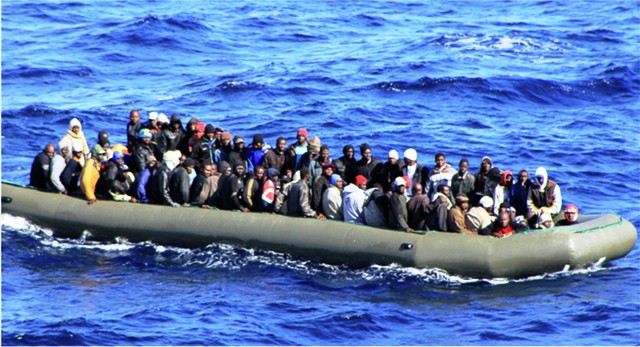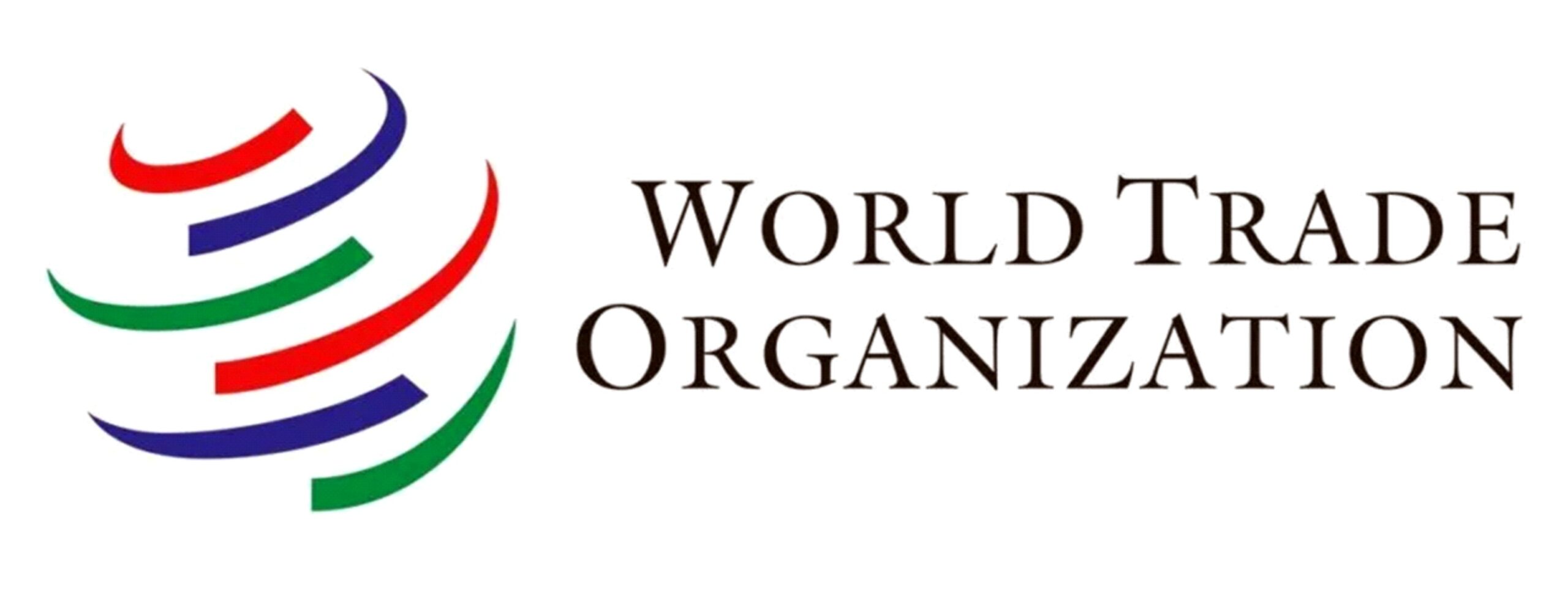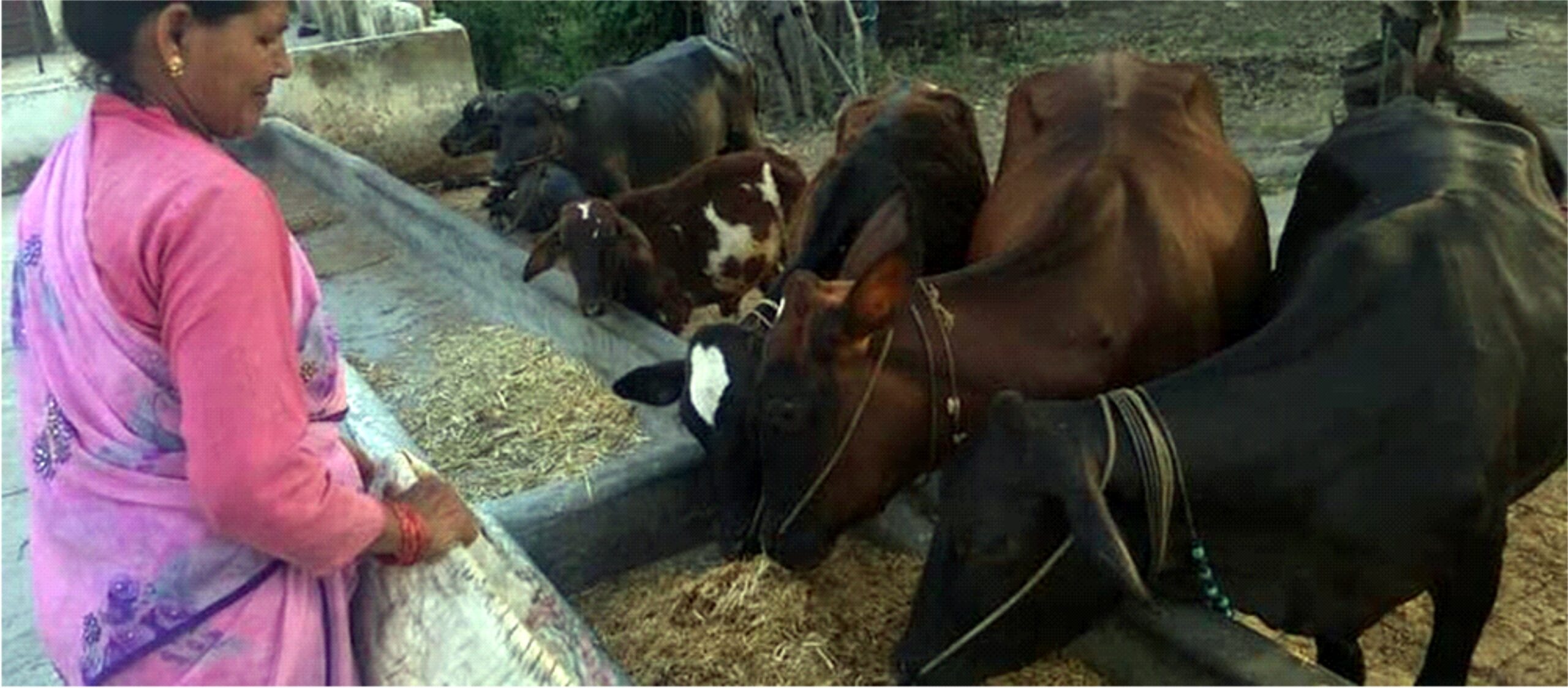Agriculture
Why Are Some Nigerians Eager To Migrate?

Joyce Esosa, 29, is from Edo but finds herself roaming the streets of Abuja after an attempt to migrate to another country without valid documents failed.
Earlier, she had also made frantic efforts to study medicine in one of the nation’s universities but she was not lucky and she believes something ought to be done quickly because she is ageing.
She finally got involved in discussions with some friends on how Nigerians move to other countries to seek job and comfort in most of European countries, especially, Spain, via crossing the Mediterranean Sea in Libya coasts to the country.
Migrants preparing to cross to Europe through the Mediterranean Sea
Telling her story to justify her decision to travel out, she says “each day in Nigeria feels like hell for me and all I want is an opportunity to travel abroad and make a better living.
“I have nine siblings and I am the third; my father died years back and my mother is a petty plantain trader; life has been very difficult for the family.
“Two of my siblings died due to lack of money; the first one died in an accident where she hawked sachet water.
“Eight months after, I lost the second to a sickness that required blood transfusion and because the family did not have money to buy blood, he had to die.
“I decided to seek a better life for both myself and family at all cost, I ran away from home four years ago.
“I made several attempts to travel out of the country but it never worked out when a friend took me up in Abuja, promising to help me to get a job, only for her to introduce me to different men.’’
Similarly, 34-year old Musa Ahmed, a commercial motorcycle operator from Zamfara believes that people are willing to do anything to improve their living standard, attributing the development to level of poverty in the country.
“That is why the crime is high in Nigeria because it hurts a lot to see your loved ones suffering and you can’t help or do much.
“I live in an uncompleted building with my family; I was a farmer back in Zamfara now in Cross River. I relocated because I wanted a better life for myself and for my family.
“Life is not getting better here either for me and my family, I ride motorcycle in which each drop is N50 and I make at least N1, 500 per day, but it is usually not enough.
“If government can create opportunities and bring down the cost of living, things will get better and Nigerians will not waste time in seeking comfort elsewhere,’’ he said.
Observers, therefore, note that poverty, lack of job opportunities and uncertainty about life, somewhat, contribute to the desire of some Nigerians to flee the country.
The note that although government authorities and other stakeholders have been warning against illegal migration on many occasions, some people are bent on such mission that, in most cases, can end in regret.
Yet, statistics from European Union show that Nigeria has the fifth highest number of citizens illegally migrating to Europe in the search for illusive greener pastures.
Worried by the development, the Chief Executive Officer of a non-governmental organisation, Connected Development, Mr Hamzat Lawal, called on the youth to leverage on the climate change to create sustainable job opportunities using emerging technology instead of travelling overseas.
Lawal noted that climate change was a 21st century problem which could also have its advantages to check illegal migration.
He said as much as climate change was viewed as a problem, it was also an opportunity for the country to manage its limited and scare resources.
“We can generate electricity from solar energy or sunlight. We can use new and emerging technology to cook and reduce greenhouse gas; this is how it can become an opportunity.
“Climate change has affected our economy negatively; also our forest cover has been depleted over time by people cutting down trees for fire or furniture.
“The Lake Chad region which used to be a business hub for Nigeria and even other African countries, where they have fishermen and women doing businesses, is no longer so.
“This means that the young energetic people have now migrated and left the region in search of greener pasture whereas they can use new and emerging technology created by climate change to develop in their own country,’’ he said.
Lawal said migration of Nigerians had also increased because of the economic crisis in the country, observing that there were still hope and opportunities.
“We are losing talents and young minds that are supposed to build our growing economy because people are leaving the country because of lack of opportunities,’’ he said.
“Government needs to look at how we can thrive by tapping into new and emerging technologies such as the clean cooking stoves that emit lesser greenhouse gas to engage the youth.
“If we can invest more in solar technology, build capacity and also reduce taxes to businesses, it will create value and jobs.
“If there is an enabling environment where there is hope of prosperity, people will not want to travel out of the country.
“People will not want to leave their comfort zone to undertake the risk of travelling for days and putting their lives in danger.
“But, because things are not the way they should be, that is why people are willing to take all manner of risks to better their lives; simply because they believe that there is hope and prosperity on the other side,’’ he observed.
In the light of this, Mr Nnimmo Bassey, an environmentalist, advised the Federal Government to implement existing expert research findings to recharge the Lake Chad basin.
Bassey, the Executive Director, Environmental Rights Action, an environmental rights advocacy group, observed that it was a good development that Germany offered to pump 18 billion Euros to recharge the Lake Chad Basin.
He said implementing the research findings, already analysed by experts, would contribute to the success of the project.
The environmentalist, who attributed the shrinking of the lake largely to climate change, said that research had been conducted over the years on ways to tackle the problem.
Bassey, therefore, commended Nigerian and German governments for their efforts to revive the lake, noting that vibrant Lake Chad business communities would, to some extent, check illegal migration among Nigerian youths.
“We do not have details of what the assistance from Germany will be directed to, but we hope it addresses the research findings of appropriate bodies that have worked on the challenge.
“There is the need to rebuild the overall environment but this must be phased with short, medium and long term outlays.
“Efforts must be made holistically with all countries in the Lake Chad basin playing their roles.
“There is urgent need for us to step up our watershed management because sometimes, we tend to think that water supply is inexhaustible,’’ he said.
Bassey suggested intensive planting of indigenous trees and crops that were well adapted to the region to protect watersheds and the environment.
All the same, concerned citizens believe that implementation of good policies and making the governance process more citizen-friendly, are some of the methods of discouraging more Nigerians from travelling abroad illegally.
Onyegbula writes for News Agency of Nigeria.
Jessica Onyegbula
Agriculture
Nigeria’s Agric Exports Face Rejections Overseas

The World Trade Organisation (WTO) says Nigeria has lost its leading position in the agriculture export markets because its agricultural commodities do not meet the sanitary and phytosanitary requirements of the foreign markets.
According to WTO, despite the abundance of arable lands and increased investments, the nation has transitioned into a net importer of farm produce that was previously cultivated domestically, undermining efforts aimed at ensuring food sustainability.
The Director-General, WTO, Ngozi Okonjo-Iweala, disclosed this in Abuja at the launch of seven trade support programmes initiated by the WTO-ITC to boost the development of Nigeria’s trade and industry standards.
The initiatives, namely the Standards Trade Development Facility, Digital Trade Initiative support, Women Exporters Entrepreneurship support, National Trade Portal and cotton development initiative, aim to provide technical support to strengthen food safety, animal and plant health capacity in developing countries, address challenges of e-commerce digital trade divide and establish a world-class technology centre for all trade-related data and information in Nigeria.
“We are launching today with STDF, ITC, and the NEPC, a project to help with international safety and quality certification for sesame and cowpeas or black-eyed peas.
“The agriculture sector in Nigeria has the potential to be a major driver of export diversification and job creation, but too much of this potential remains unrealized, due to a variety of barriers.
“In fact, Nigeria has not only lost out in agricultural export markets, it is a net food importer spending about billions a year on goods, many of which we can also produce here.
“Some of Nigeria’s unrealised potential has to do with trade-related problems on the supply side, and that is what this project is seeking to rectify”, the WTO DG stated.
Specifically, she said Nigerian cowpea and sesame exports were increasingly facing rejections in several destination markets due to non-compliance with international SPS requirements.
According to her, the failure to comply with regional, global and import country sanitary and phytosanitary standards has resulted in loss of sales, revenue, and hard currency due to export rejects.
Last week, the former Finance Minister charged Nigeria and other African countries to improve the quality of their shea exports to international standards.
She added, “Nigeria is the world’s largest producer and consumer of cowpeas. Sesame is primarily an export crop, and Nigeria is the world’s fourth leading producer, exporting to the EU, Türkiye, Japan, South Korea and other Asian markets.
“However, Nigerian cowpea and sesame exports have increasingly faced rejections in several destination markets due to non-compliance with international SPS requirements”.
She said for example, “Nigeria accounts for over a third of Japan’s sesame imports, but health and safety inspections during the past few years have found instances where pesticide residue levels were nearly double the maximum residue limits permissible from 2019 to 2021″.
Hence to tackle the challenges, Okonjo-Iweala said the WTO was partnering with relevant stakeholders to build the capacities of stakeholders across the sesame and cowpeas value chains to better understand market access requirements and improved agricultural practices such as pesticide application, hygiene techniques, harvest and post-harvest methods, and food safety.
She said the project, which would be implemented with $1.2mn funding, would improve the country’s non-oil export.
On her part, the Minister of Industry, Trade and Investment, Doris Aniete, said the Ministry was putting in place policies and mechanisms that would facilitate and enhance trade, while also removing all the bottlenecks hampering trade and investment.
She further stated that the Ministry had started rolling out the N50bn Presidential Conditional Grant Scheme through the Bank of Industry, targeting various economic players.
She added that a N150bn intervention through the FGN MSME and Manufacturing Sector Fund, providing low-interest loans that are pivotal for scaling businesses and spurring job creation would commence very soon.
“We are achieving this by facilitating a strong enabling environment for businesses to thrive, developing robust policies and reforms, increasing access to financing, widening access to global markets, driving investments, and creating job opportunities, all in line with the vision of Mr President.
“In 2024 we are focused on improving infrastructural capacity such as power and transport, as well as soft infrastructure such as transparent regulation, policy consistency, the rule of law, and a culture of efficient collaboration and synergy among various government agencies and offices.
“We believe this will facilitate an environment where business operations are not hindered by red tape but can continue to thrive”.
Also speaking, the Executive Director of the Nigerian Export Promotion Council, Nonye Ayeni, explained that the project, expected to last for three years, would enhance the quality and standard of sesame and cowpea through the institution of good Sanitary and Phyto-sanitary conducts.
She disclosed that in 2022, the worldwide value of sesame exports and its value chain amounted to $7.35bn, projected to surge to $9.27bn by 2032. Similarly cowpeas were valued at $7.2bn in 2023, with an anticipated rise to $9.43bn by 2028.
“This project, STDF 845, will therefore enhance the quality and standard of sesame and cowpea through the institution of good Sanitary and Phyto-sanitary conducts, Good Agricultural and Warehousing practices, packaging/labelling and excellent storage systems.
“All these are expected to forestall frequent contract cancellations and loss of business opportunities while allowing a significant increase in global acceptance of the items and for better quality of these products consumed locally.
“This project is designed to last for three years to enhance the integrity of the cowpea and Sesame value chain from Nigeria.
“Therefore, the focus lies on improved practices that will enable Nigerian stakeholders to comply with Maximum Residue Levels of selected pesticides used in Cowpeas and Sesame and Microbiological contamination with Salmonella (Sesame).
“Overall, it will improve the regulatory and control system as well as farming and processing practices applied for Cowpea and Sesame”, she concluded.
Agriculture
WOFAN Provides Health Care Services For Rural Women Farmers

The Women Farmers Advancement Network (WOFAN-ICON2), with support from MasterCard Foundation, and in partnership with Benson Colman and Associate Limited, has provided a “Lab-ulance” to support the healthcare system of a farming community in Gwarimpa Village, Federal Capital Territory (FCT).
This is part of its activities to mark this year’s International Women’s Day celebration.
The Lab-ulance is a tricycle fully kitted with medical equipment such as laboratory equipment, midwifery equipment, refrigerator powered by a solar system and other basic health equipment.
Executive Director of WOFAN, Hajia Salamatu Garba, while interacting with journalists at the unveiling of the programme, said the initiative was borne out of the concerns that farmers too need to be healthy before they can farm.
“It is the same thing that we are talking about and it is where holistic development is missing in Nigeria, because someone is farming doesn’t mean that after giving him fertiliser and seed, then you go and fold your arms, no.
“Farmers need to remain healthy before they can produce food for us sustainably. And if you look at the farming communities, they lack access to roads, healthcare facilities and so on. They can’t at first hand get services for their families.
“This was what brought the issue of Lab-ulance. These are youth that are working with WOFAN that decided to go innovative and come up with a very simple and affordable transport system that can also carry a doctor.
“In this Lab-ulance, we have the midwifery, we have the laboratory equipment, we have every equipment you need, including a refrigerator that is powered by solar system. This is the kind of development that we need in Nigeria”, Hajia Garba said.
She said it is ideal for every ward in Nigeria to have this system linked to primary healthcare and doctors would not be seen running away from duties because they have necessary facilities.
According to her, the women are required to pay only N2,500 as health insurance which will cover their husband and two children.
Agriculture
Expert Harps On Women Engagement In Livestock Farming

An agricultural expert, Dr Olufemi Bolarin, has called on women to fully engage in economic activities, including livestock farming, leading to increased productivity and resilience within the sector.
Bolarin, the Kogi State Coordinating Office of Livestock Productivity and Resilience Support Project (L-PRES), disclosed this in his welcome address at the Gender Training on Prevention of Sexual Exploitation Abuse and Harassment (PSEAH), Gender-Based violence (Do No Harm Training and the Signing of the Code of Conduct for Kogi L-PRES PIU).
According to him, “these are not just numbers, they represent the lived experiences of individuals, impacting their physical and mental well-being, their sense of security, and their ability to participate fully in the society.
“The livestock sector, which our project focuses on is no exception to these challenges in which case women play a significant role in the sector, yet they often face unique vulnerabilities including limited access to resources, decision-making power and protection from violence.
“Gender-based violence (GBV) not only inflicts direct harm on women, but also undermines their capacity to contribute meaningfully to the development of the livestock sector and society at large”.
He noted that addressing the problem of GBV is not only a moral imperative but also a strategic necessity for sustainable development.
He added that when women are empowered and free from violence, they can fully engage in economic activities, including livestock farming, leading to increased productivity and resilience within the sector.
“Moreover, empowering women in the livestock sector has broader implications for development. Women are not just beneficiaries, they are agents of change and key drivers of progress in their communities.
“Today’s training and the signing of the Code of Conduct represent a step towards creating a safer, more inclusive, and equitable environment for all.
“By committing to PSEA, GBV prevention, and Do No Harm principles, we are laying the foundation for a more just and prosperous future, where every individual can thrive regardless of gender.
“I extend my deepest gratitude to all our partners, trainers, and participants for their unwavering support and dedication to this cause. Together, let us work tirelessly to eliminate GBV, empower women, and build a brighter, more inclusive future for Kogi State and its livestock sector”, he stated.
In her remarks, the Permanent Secretary, Ministry of Agriculture and Food Security, Hajiya Lami Zaratu Lawal, commended Kogi L-PRES for the proactive steps taken to implement the Project in the State.
On her part, the National Gender Based Specialist of L-PRES, Mariam Ademu, said World Bank has zero tolerance for GBV, saying the training was to equip the Project Implementation Unit with the challenge of gender inequality.
In her presentation, the Executive Director, Challenged Parenthood Network, Ms. Eunice Agbogun, said Lack of access to land, cultural norms and social barriers, among others, are inimical to women participation in livestock farming, adding that empowering of women is key to reducing GBV in Nigeria.
-
Sports4 days ago
Nigeria’s Onakoya Sets New Chess Record
-

 Niger Delta3 days ago
Niger Delta3 days agoA’Ibom Plans 486 Rural Road Repairs To Boost Agric
-

 Maritime4 days ago
Maritime4 days agoNigeria Records 3,310 Boat Mishaps In 10 Years
-

 News4 days ago
News4 days agoEFCC, Experts Warn Nigerians To Guard Against Cyber Crimes
-
Opinion4 days ago
Agriculture: Solution To Hunger, Inflation, Food Insecurity
-
News4 days ago
Pan-Igbo Group Hails Dangote Group For Reducing Diesel Price
-
Sports4 days ago
Minister Renews Hope For Sports Dev, Signs MoU
-

 Rivers3 days ago
Rivers3 days agoBayelsa LG Polls: BYSIEC Issues Return Certificates To Chairmen, Others

